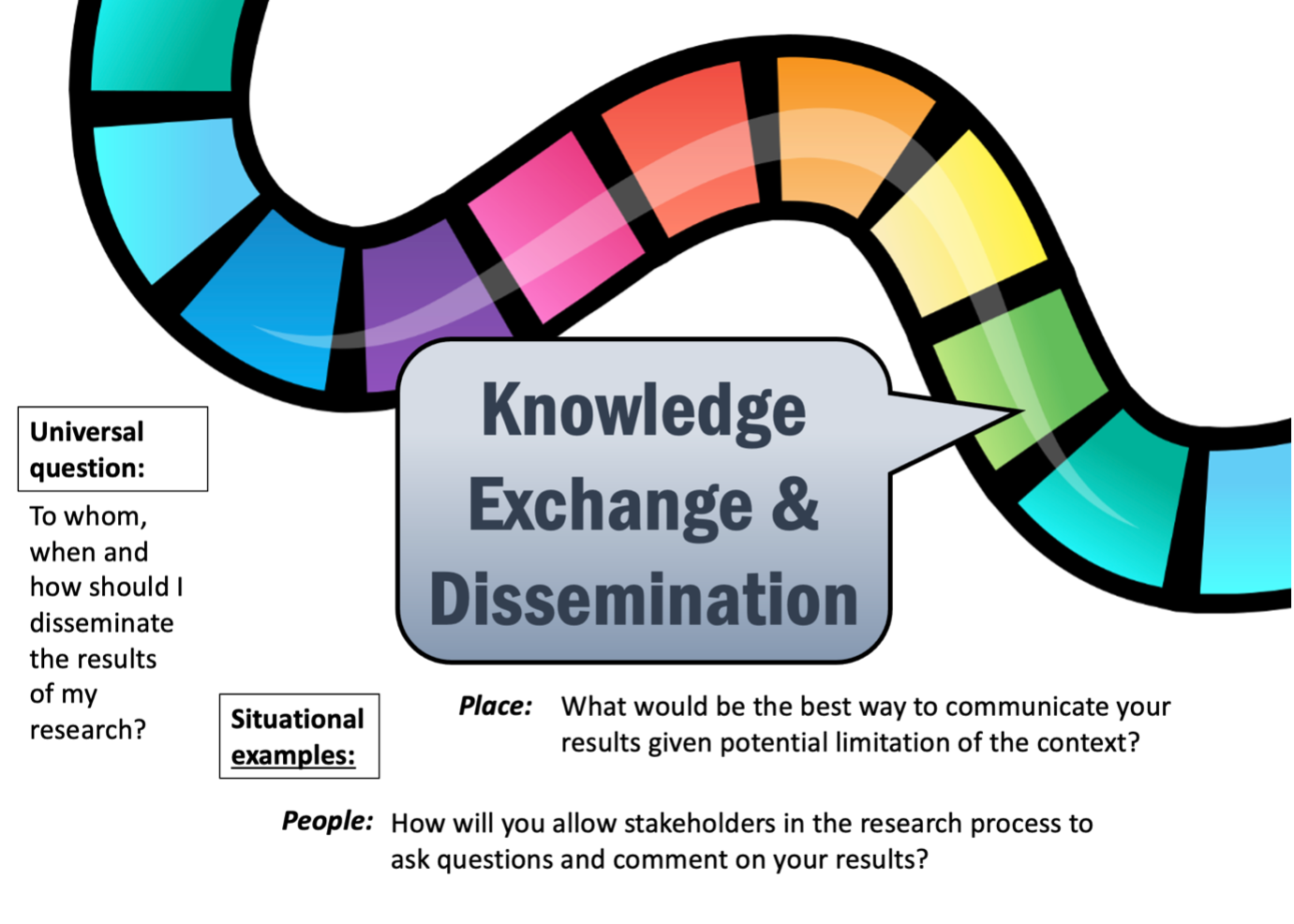|
Stage 10 KNOWLEDGE EXCHANGE AND DISSEMINATION
|
This stage is essential in order to share key insights in formats that are accessible to those who can bring positive change (e.g., local practitioners, communities, policy developers etc). Formats could include summary papers, presentations, websites/apps, workshops as well as wider publicity and engagement (e.g., social media, media releases and story sharing). What is communicated and how it is communicated can have significant ethical implications for each stakeholder group. |
|||
|
|
||||
|
Being alert to ethical dilemmas |
||||
|
How can we share research findings in ways that honour everyone involved and have a positive impact?
|
Supporting considerations:
|
|||
|
Working towards solutions |
||||
|
Place |
People |
Principles |
Precedent |
|
|
Consider the different actors to whom dissemination will be directed and their particular context. Adapt the method of dissemination (paper, e-mail, small-group workshop, etc.) to the specific needs of the group and the resources and limitations of its context. Decide when is the best time to disseminate information to each actor (in some cases it is necessary to disseminate the preliminary results while in others it is better to wait until the end of the analysis process) Be creative in how you communicate your results. Do not be constrained by scientific tradition. Images, art, theatre, news stories, film, are all media that can support effective dissemination. |
Discuss with your local partners the issue of who can potentially be benefited or harmed by the dissemination of study results (participants, communities, political leaders, funding agencies). Think about possible conflicts of interest with these actors and how to disseminate the results effectively and honestly. Generate spaces for the stakeholders in the research process to ask questions and comment on your results. |
Prioritise disseminating your results (you have made a commitment to do so by recruiting people into your study), but also about doing it clearly so that the message can be understood by different audiences. Take the extra time to think about how to ethically convey your message. Make sure to have a translational focus when sharing your findings. Make it easy for people to understand why your results are important and what difference they can make. |
Check local regulations and place-based preferences around sharing findings. What is the best way to disseminate results in this context? You may not find previous information, in that case be thoughtful in your choices because you will be creating a precedent! |
|
Body
